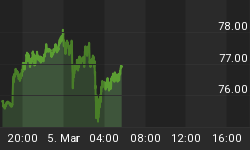The battered marijuana sector has received a much-needed shot in the arm after tobacco company Altria Group Inc. (NYSE:MO) agreed to take a minority stake in Cronos Group Inc.(NASDAQ:CRON), the fourth-largest Canadian cannabis producer. Cronos shares surged 20 percent and triggered a mini-rally for pot stocks after the Marlboro cigarette maker agreed to make a $1.8-billion investment in the company, good for a 45 percent stake.
Pot stocks had taken a beating last week after short-sellers Hindenburg Investment Research and Quintessential Capital published an incriminating report on Aphria Inc.(NYSE:APHA) accusing the company’s management of using shareholder funds to purchase foreign properties at wildly inflated prices.
The valuation of weed stocks has been cut nearly by half since the beginning of the year.
New Legitimacy
The investment is the second largest in the marijuana industry and the first tie-up between big pot and big tobacco. The weed industry has been seeing a lot of investments coming from the booze sector with Constellation Brands’(NYSE:STZ) $4 billion investment into Canopy Growth Corporation (NYSE:CGC) to develop cannabis-infused drinks being a high watermark for the burgeoning sector.
From an investment view point, the investment provides overall legitimacy to the industry and can support higher valuations.
The recent short-seller report only served to add to concerns regarding the sector’s lofty valuations, with nagging shortages as well as weaker-than-expected earnings putting the sector under pressure.
Interestingly, the target of the short-seller report, Aphria, was one of the biggest gainers after the merger, with the stock rallying eight percent on Monday at 10.35am ET to retrace some of its earlier losses while Aurora Cannabis Inc. (NYSE:ACB), Tilray, Inc.(NASDAQ:TIL) and Canopy Growth all moved higher.
The report is by no means the only swipe at the industry.
Al Rosen, founder of forensic accounting firm, Accountability Research Corp., is a long-time critic of the cannabis industry. Rosen has criticized cannabis accounting for what he has termed as “audited hallucinations”. Specifically, he has taken issue with how the industry computes a metric known as fair value which measures the worth of plants as they grow. The industry usually makes several assumptions about plant yields, growing costs and selling prices. With the unrealized value of plants factored into the gross profit, it’s not uncommon for pot firms to report gross margins in excess of 100 percent. Further, he has sounded the alarm over Canada’s lax accounting standards and permissive regulatory frameworks.
Storm is Over?
Valuation concerns though are old news in the marijuana industry, with investors having come to accept them as part of the territory.
Investors will definitely keep their fingers crossed and hope that the latest rally signals the end to the cannabis bloodbath.
The carnage started shortly after October 17 after Canada passed laws to legalize recreational marijuana. Coincidentally, that’s around the same time that the broader market selloff kicked in. One thing was clear though: it was not the tail wagging the dog since the marijuana correction actually lagged the S&P 500 by a couple of days. In other words, it was the overall market weakness taking down pot stocks.
Investors tend to get nervous whenever the market corrects around 10 percent or more, with the first response being to lock in gains to winning positions.
Cannabis stocks had rallied about 75 percent from mid-August to mid-October, making the industry susceptible to profit-taking. The industry is likely continue being volatile due to the perception of risk until the shakeout is complete--and that might take several years.
By Alex Kimani for Safehaven.com
More Top Reads From Safehaven.com
















